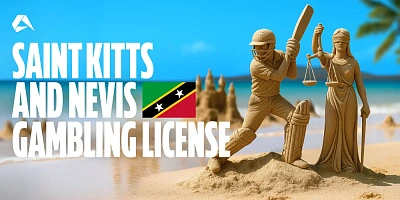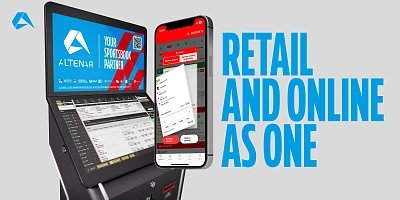Overview What Happens When Software Mistakes Go Public
Operational errors in the gambling industry, especially those that become public, can severely erode customer trust and reputation. This essential guide explores how major operators navigate crises, from payout miscalculations to odds-setting blunders. When Norway's Norsk Tipping mistakenly displayed inflated Eurojackpot winnings due to a manual coding error, their swift response, open communication, and the CEO's resignation demonstrated visible accountability, crucial for damage control.
In contrast, Paddy Power’s legally rigid stance against honouring a displayed £1.1 million jackpot win proved reputationally damaging, underscoring that defending policy can be brand suicide. However, FanDuel’s decision to honour an $82,000 odds error as a goodwill gesture turned a potential disaster into a trust-building success. We analyse key strategies for effective crisis response, emphasizing that fast action, transparency, and prioritising brand trust over short-term financial protection are necessary to recover from errors.
Read the full blog to see how operators turn mistakes into trust-building opportunities!
Operator Responses That Worked (and Those That Didn’t)
Experienced operators are generally no strangers to errors, but some mistakes take on a life of their own. In gambling, as we know, mistakes are costly, but when they happen in full public view, the impact goes far beyond lost revenue. Over the years, many operators have faced everything from payout miscalculations to odds-setting blunders, each incident testing their capability in crisis response and damage control.
Norway’s state-owned Norsk Tipping recently joined this list after thousands of customers were mistakenly told they’d won life-changing prizes in a Eurojackpot draw. For a brief, ecstatic moment, some believed they’d be buying new cars or finally finishing home renovations – only to watch those dreams vanish within hours.
It’s a stark reminder of the human side of operational mistakes and why transparency, speed, and accountability are essential in damage control. But Norsk Tipping isn’t alone. Across the industry, several major operators have faced a similar crisis, and their responses offer valuable lessons for everyone.
A Life-Changing Win That Wasn’t
The Norsk Tipping Payout Blunder
In late June of 2025, Norway’s state-owned gambling operator, Norsk Tipping, found itself at the centre of public outrage after thousands of customers were told they had won life-changing sums in the Eurojackpot draw. For a few exciting minutes, players saw prizes worth hundreds of thousands of kroner displayed on their accounts.
But as reported by The Guardian, the reality behind those winnings was far less joyful. The error stemmed from a simple but significant error in Norsk Tipping’s prize conversion process. Eurojackpot amounts are received from Germany in euros and then converted into Norwegian kroner. In this case, a manual coding input multiplied the amounts by 100 instead of dividing them by 100, inflating prize values by a factor of a hundred.
Unfortunately, the inflated winnings were visible on the company’s website and app for a short time before being quickly removed. While no incorrect payouts were made, the emotional damage was immediate. Stories emerged of players celebrating their wins, making plans for their windfalls, only to face crushing disappointment hours later. Public criticism poured in, not just from customers but from Norway’s Minister of Culture, prompting an emergency meeting to address the fallout.
When Mistakes Go Public
Faced with public backlash and media scrutiny, Norsk Tipping moved quickly to contain the situation. According to The Guardian, the operator immediately removed the incorrect prize amounts from both its website and mobile app once the error was identified. No false payouts were made, which prevented significant financial losses, but the emotional damage was already done.
To address growing criticism, Norsk Tipping issued a public statement explaining exactly what went wrong. They detailed the manual coding error in their conversion process, aiming for transparency to calm both customers and regulators. However, the most visible act of accountability came when CEO Tonje Sagstuen resigned, stating it was her responsibility to handle the mistakes that had occurred.
Internally, the company launched a full investigation into the incident and committed to implementing safeguards to prevent similar errors in future. The speed of Norsk Tipping’s response, combined with open communication and leadership accountability, was, in the company’s view, key in restoring customer trust. For many players, though, the emotional effect may linger far longer than the headlines.
Trust Lost Faster Than Money
The incident surrounding Norway's largest operator highlights the importance of accuracy in gambling, especially when errors directly touch customer emotions. In this case, the emotional damage was significant. And for industry operators, the takeaway is clear. Mistakes in payouts, real or perceived, erode trust faster than almost any other failure. Transparent communication, immediate corrective action, and visible accountability are essential to managing public backlash.
Still, prevention remains the best strategy. Routine system checks, clear coding protocols, and automated safeguards can reduce the risk of manual errors slipping through. In an industry where credibility underpins every bet, securing against small operational mistakes can prevent the kind of reputational damage that lingers long after the headlines fade.
Software Glitch or Operator Fail? Paddy Power’s £1.1m Blunder
Norsk Tipping’s swift, accountable response stands out as a textbook example of effective damage control. But not all operators take this route. In some cases, payout errors have been handled very differently, and with mixed results.
In 2020, for example, British casino player Corrine Durber was playing Paddy Power’s “Wild Hatter” slot when her screen lit up with a Monster Jackpot of over £1.1 million. Overjoyed, she briefly believed her life had changed forever. But as reported by The Times, Paddy Power later informed her that due to a software mapping error, she hadn’t actually won the displayed amount. Instead, they credited her account with £20,265, which was a mere fraction of what she saw on her screen.
Paddy Power explained that a backend system issue had caused the displayed win amount to incorrectly map to the jackpot value. Their stance was that backend game records are definitive and override visual display errors. Durber, feeling deceived, took legal action. The case progressed over several years, and in March 2025, the UK High Court ruled in her favour, stating that the operator was liable for the on-screen advertised jackpot.
When Defending Policy Becomes Brand Suicide
Throughout the dispute, Paddy Power maintained its position that the jackpot display was a technical error and insisted that backend game records were definitive. They offered no goodwill settlement beyond the £20,265 credited, framing the issue purely as a software glitch beyond their control and liability. This stance remained unchanged even as public criticism mounted, with many questioning how an operator could deny an on-screen win without undermining trust in their platform’s fairness.
From a damage control perspective, Paddy Power’s approach was legally defensive but reputationally costly. By refusing to acknowledge the emotional impact on the player and declining any conciliatory gesture, they positioned themselves as rigid and profit-protecting rather than customer-focused. The High Court ruling against them not only forced the full payout but amplified negative headlines, casting the brand as untrustworthy in the eyes of many players.
Goodwill Costs Less Than Lost Trust
In high-profile payout disputes like this, operators must weigh legal correctness against the longer-term cost of eroding customer confidence and public credibility. That’s to say that while strict adherence to backend data may protect immediate finances, the reputational damage can undermine years of brand trust, loyalty, and player acquisition efforts.
In practical terms, goodwill gestures, negotiated settlements, or honouring visible wins, even when technically disputable, can transform a potential PR disaster into a demonstration of fairness and customer care. Why is this important? Well, one could argue that in gambling circles, trust is currency, and once lost, it is rarely regained in full.
FanDuel’s $82,000 Odds Blunder: A Mistake That Paid Off
Paddy Power’s rigid approach stands in stark contrast to how other operators have handled similar situations. Take FanDuel, for example. When faced with a pricing error that could have cost them dearly, they turned a potential PR disaster into an opportunity to build goodwill instead. Central to the FanDuel incident is a story that shows just how quickly an operational mistake can escalate, and how a company’s first reaction isn’t always its final one.
In September 2018, FanDuel made headlines when a simple odds-entry error almost cost them $82,000. During an NFL live game between the Oakland Raiders and Denver Broncos, FanDuel mistakenly listed the Broncos at 750-1 (750/1) odds to win, instead of the intended -6000 (1/60). A New Jersey bettor noticed this and placed a $110 wager. When Denver won, his payout calculated to an eye-watering $82,000.
The Odds Error That Became a PR Opportunity
Initially, FanDuel refused to pay out, citing a clear pricing glitch and referencing their house rules, which allow operators to void bets in the event of clear-cut errors. But the public backlash was swift and intense. Social media erupted with criticism, accusing the operator of failing to honour legitimate bets. The story gained traction across US sports media, painting FanDuel as unfair and untrustworthy.
Recognising the reputational risk, FanDuel quickly reversed its decision. They honoured the full $82,000 payout and cleverly repositioned the incident as a demonstration of their commitment to customers, branding it a goodwill gesture.
So, what can we learn from this? Clearly, in cases where payout errors are financially feasible, honouring the bet can transform a potential PR disaster into a brand-building opportunity. FanDuel’s eventual decision protected trust and gained favourable media coverage. Moreover, it showed that protecting long-term brand equity, in gambling at least, often outweighs short-term financial costs.
Common Threads in Damage Control and Recommended Response
When mistakes happen, the first few hours shape how customers, regulators, and the media respond. Across every case, certain damage control strategies consistently emerge as the most effective ways to contain fallout and rebuild trust:
1. Move Fast to Contain the Problem
Act immediately to limit customer exposure, prevent payouts if possible, and address misinformation. Speed reassures players that the operator is in control and is on top of the issue.
2. Be Transparent from the Start
Clear, honest explanations maintain public trust, even when errors occur. Avoiding vague statements reduces backlash and prevents theories from filling gaps in communication.
3. Acknowledge Emotional Fallout
Mistakes involving potential winnings trigger emotional reactions. Responding to the emotional side of the mistake, not just the financial loss, shows human understanding and supports long-term relationship building with customers.
4. Take Visible Accountability
Public acceptance of responsibility, even at leadership level, restores confidence. In contrast, avoiding blame or hiding behind policies damages trust far more deeply.
5. Weigh Legal Protection Against Brand Trust
Strict rules can protect finances in the short term, but a rigid refusal to accommodate customer sentiment often harms the long-term reputation, loyalty, and acquisition more than paying out.
6. Communicate Changes Publicly
Announce preventative improvements after an incident. Demonstrating what you have learnt reassures both regulators and players that issues are being addressed and unlikely to recur.
7. Offering Goodwill Can Sometimes Be The Best Policy, Even When Not Liable
Compensatory gestures (free bets, credits, or partial payouts) can defuse anger and protect brand perception, even when operators aren’t legally obliged to compensate.
Further Recommendation
Prepare Crisis Playbooks in Advance
Having pre-approved internal procedures for payout errors, communication, and speed response times minimises confusion during high-pressure situations.
Final Thoughts
No operator is immune to mistakes and errors, whether technical or human, are an inevitable part of running an online gambling platform. What matters most is how operators respond when those mistakes become public.
Fast action, transparent communication, and genuine accountability consistently separate recoverable incidents from lasting brand damage. In an industry where trust is everything, it’s often the response, not the error itself, that defines how players, partners, regulators, and the general public view the brand long after the crisis fades.
In iGaming, trust in every transaction matters. Discover the sportsbook software that keeps your operations stable, secure, reliable and scalable. Schedule your software demonstration today if you want a platform built on solid foundations.














